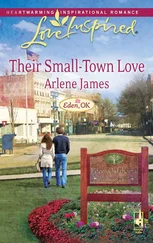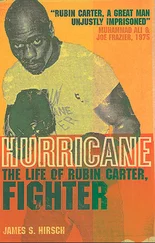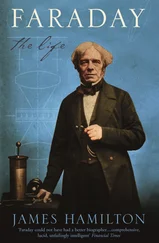“Didn’t know you boys played jazz,” Trey says, between sets.
“They pay pretty well at these gigs,” Antonio says. “And it’s a little more dignified, I suppose, if you go for that sort of thing.”
“Dignity?” says Trey. “I’m a salesman, and my buddy here? A lawyer. Robert. Robert! What kind of law do you practice, Robert?”
“Corporate litigation,” Robert says, who’s already slightly drunker than he meant to be.
“Corporate litigation, woo,” says Antonio, shaking his head. “Well, we’re going to be at the Black Box after hours, if you fellows are interested.”
“Of course we are,” says Trey.
“I think I’d better head home,” says Robert.
“Robert, buddy, you are in no condition to drive,” Trey says, clapping him on the shoulder. Then, turning back to Antonio, “What’s the address? I’ll put it into my phone.”
“No address,” Antonio says, and draws him a map on a napkin.
The Black Box social club and bar turns out to be behind a façade painted entirely black, not far from the Greyhound station. A bouncer shines a light in Trey and Robert’s eyes before letting them enter. Inside, the walls are lined with pictures of planes in downward spirals or crumpled and smoking after a crash. Antonio and Hugo are at a low table in the corner, drinking something called a Hull Loss, the ingredients of which the bar’s owner has spent his career refusing to divulge even to the local authorities. The musicians have already bought a round for Trey and Robert. “I’m driving,” Trey insists. “You’ll have to give mine to Robert here.”
The owner of the bar, whom Antonio says is a friend of his family from back in California, was a commercial pilot for twenty-some years. He settled down after he miraculously survived a mid-air crash over Indiana during the air traffic controllers’ strike in the eighties.
Robert finishes his Hull Loss. Trey has disappeared. People are dancing. A woman in a too-short orange dress is dancing right by Robert’s chair, bumping him with her hip. He keeps pushing her away. He feels terrible. He tries to explain to Hugo and Antonio about the difficulty of trying to determine whether his wife is once again beginning to love him. “She did love me, once,” Robert says. “I think that just… it was a lot to deal with. For both of us. My friend Trey thinks it’s treatable. Her condition.”
“What is her condition?”
“That she doesn’t love me anymore.”
Hugo looks at Robert with concern. Antonio stares at the woman in the short orange dress, who is once more bumping Robert with her hip.
“I met herat a party in Ann Arbor,” drunken Robert tells Hugo and Antonio, as the Black Box slowly fills around them. “It was a mixer that one of my housemates was throwing, with the express purpose of giving humanities students an opportunity to hook up with law students. My housemates were horrible people. One of Viola’s friends dragged her to it because she thought it would be hilarious. I think that Viola’s friend might have been a slightly horrible person, too. The friend left early, but Viola stayed, talking to me. She had mistaken me, at first, for another humanities student, and asked how I’d ended up there. I wasn’t dressed like a lawyer, she said. How do lawyers dress, I asked. She gestured around the room. ‘Kind of like assholes?’ she said. I laughed.
“I remember she was wearing these earrings, they looked a little like black pearls. They were trilobites, she said, fossils. ‘Actual fossils?’ I said. ‘Yeah,’ she said. It turns out actual fossils aren’t that rare, anybody can just go and buy them in a rocks shop. That floored me, that there are so many fossils in the world that somebody could just go and make earrings out of them.
“I think that we met at the exact right time, for both of us. I had just finished sowing my oats. I’d never expected that I would do much sowing of oats, when I was younger — I viewed myself, even as a child, as steadier than that; the idea of ‘wild years’ always seemed like something other people experienced — but then in my mid-twenties, much to my surprise, I had them. A series of wild years. I couldn’t get on the bus or walk down the street in Ann Arbor without longing. I dated several women during this period who I did not love, and had no intention of loving. I once or twice went out to a bar and bought women drinks and flashed money around, much to my present embarrassment. And then, just as suddenly as they had appeared, my wild years left. I found myself, at the age of twenty-six, ready to settle down, with no one in mind to settle down with. And then I met Viola.
“She had been through a string of terrible relationships herself, with men who were worthless. Some of these men, I think, were physically violent. She told me that for a long time, she had no particular intentions of settling down, ever. For example, for most of her life she’d assumed that she wouldn’t ever want kids. But she got burned by too many men.
“Perhaps I was too ready to see myself as an endpoint. To see her life as leading inevitably to me. I would be steady, for her, and we would settle down and be happy. I took the Indiana Bar and we moved here, to Indianapolis, and we fit ourselves into a certain narrative. Except then it didn’t happen. She experienced miscarriage after miscarriage, with no explanation. And it was like we woke up from something. It was like we had been watching a movie, and all of a sudden the house lights had come up, and ushers had descended upon us, with terrible looks that asked what we thought we were doing, still in our seats.”
Trey returnsto the table with another round. “See that little black box in the corner over there? There’s a guy at the bar, says you can put your ear up to the earpiece connected to it and you’ll hear the last five seconds of your life.”
“I have tried it once,” says Hugo, nodding.
“And? Did you hear the last five seconds of your life?”
Hugo shrugs. “Hard to know. It is very possible.”
“I don’t know if I would want to hear that,” says Robert.
“You’re a bunch of suckers,” Trey says. “It’s a joke. Of course it’s a joke.”
“So are you going to try it out?” Robert asks.
“I don’t need to try it out. It’s a joke.”
Hugo and Antonio talk about different types of guitar. Trey seems lost in thought. After a moment, he says, “Look, I’ll prove it’s a joke,” and walks over to the black box and puts the earpiece to his ear. Several minutes later he comes back to the table, visibly shaken. “It was my own voice,” he says. “It was my own voice, just like it sounds in my head.”
“What’d it say?” Robert asks. But Trey doesn’t want to talk about it.
Hugo tells Robertand Trey about the leader of the guinea-piggers, Jeremy, who came from a good family but fell into guinea-pigging after some financial difficulties. “He lives on the outskirts of town,” Hugo says. “In a storage facility purchased many years ago by Obadiah Birch Pharmaceuticals, and used as temporary housing for long-term guinea-piggers.”
“That facility was shut down years ago,” Trey says.
“Guinea-piggers?” Robert asks.
“Volunteer human test subjects,” Trey clarifies.
“Every few years there is a raid,” Hugo says. “The men in riot gear show up to force the guinea-piggers out of the storage facility by court order, and they are taken to hospital psych wards, or simply dropped off on the outskirts of town. But soon they return. Many have no other place to go. Many are illegal residents, or have bad credit, or feel as though they have found a community among the guinea-piggers.”
Читать дальше
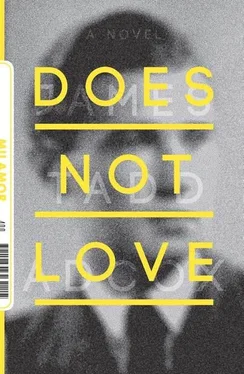

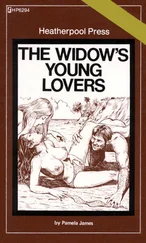
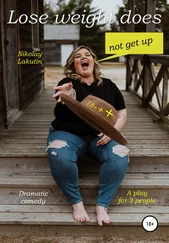
![Jakob Wassermann - Issue Does Not Exist],errors:{](/books/585068/jakob-wassermann-issue-does-not-exist-errors-thumb.webp)

